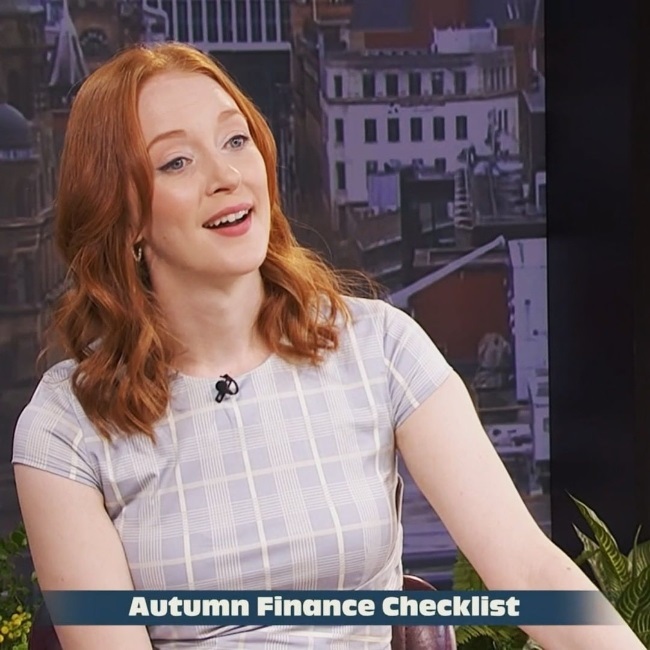
She’s a money-saving guru, a go-to financial advice blogger and an award-winning speaker, writer and broadcaster.
The irony? Iona Bain struggles with simple maths.
“If I’m adding up, I have to use my fingers,” the 34-year-old says.
Iona was diagnosed with a learning disability that makes it difficult to learn or grasp arithmetic.
“I was diagnosed with dyscalculia at school on account of my inability to hold even simple numbers in my head,” she writes in a column for the British newspaper i.
“I'll always remember being 10 years old and in a maths class where we were all told we could enjoy break time once we'd written out our times tables. Cut to all the other children playing outside while I sat at my desk in lonely bewilderment, like a character out of a Dickens novel,” Iona adds.
After crying through maths homework and finding herself among the lowest-performing pupils in the subject, she had an honest conversation with her parents, which led to her being tested and diagnosed.
She was also given extra coaching to help her pass her exams.
“When I entered journalism, I disguised my dyscalculia. Not anymore. I believe money is more about our minds than maths.”
She knows holding up five fingers on one hand and a thumb on the other makes a six, but the finance hotshot says she still doubts she might be holding up the right number.
However, that didn’t deter her from enrolling in and graduating from the University of Oxford as well as pursuing a career in financial journalism.
“Many people think they’re bad with money because they feel intimidated by numbers, and I can understand that,” she told the Daily Mail newspaper. “I just thought, 'If I can do it, anyone can'.”
She says the bulk of her work involves helping people understand the impetus behind their use of money and why they end up overspending or shying away from saving.
And while she struggles with crunching numbers, she says she’s proud to admit that a calculator comes in handy even for basic sums that an average person can solve with ease.
“It really doesn’t matter if you do maths in your head or use a calculator, as long as you get it right.”
Iona has been delivering talks about money for 11 years and says she’s passionate about helping neurodivergent people, such as those with attention deficit hyperactivity disorder (ADHD), autism and dyslexia, to have a healthier relationship with money.
“[Dyscalculia] is a condition that deserves understanding, respect and a fair hearing. We clearly have far more work to do sadly,” she once tweeted.
The disorder isn't rare – it affects approximately 5-10% of children worldwide, according to Psychology Today magazine.
The British Dyslexia Association defines dyscalculia as “a specific and persistent difficulty in understanding numbers, which can lead to a diverse range of difficulties with mathematics. It will be unexpected in relation to age, level of education and experience, and occurs across all ages and abilities.”
While a person without dyscalculia might be able to identify that the roll of a die yielded a three by associating the pattern of dots with the number, it might not be that simple for those living with the disorder.
Instead, they might have to count the dots to be sure.
More about dyscalculia
There's no cure for the disorder, but it can be treated with coaching and learning methods that can make calculating and counting less challenging.
Diagnosis
A comprehensive evaluation test that assesses specific math skills and general cognitive abilities is required. This test takes family history into consideration and has to rule out all other related disorders such as ADHD.
Symptoms
- You have a hard time recognising numbers.
- You have difficulty connecting numerical symbols with words – for example matching the figure 2 with the word "two".
- You need fingers or other visual aids to count.
- You struggle to read analogue clocks.
- You struggle to solve math problems.
SOURCES: PSYCHOLOGYTODAY.COM, DAILYMAIL.CO.UK, INEWS.CO.UK, YOUNGMONEYBLOG.CO.UK, BDADYSLEXIA.ORG.UK




 Publications
Publications
 Partners
Partners


















